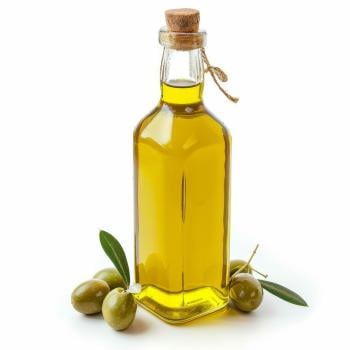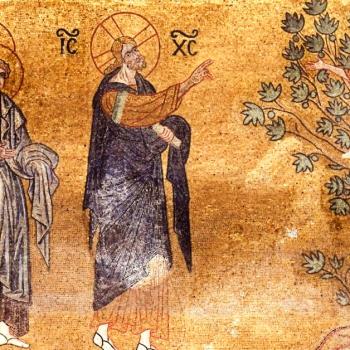Orthodox Christians prepare for Christmas by engaging in a forty-day period of fasting, the Nativity Fast, starting on November 15. Although the word "fast" is used, this is not total abstinence from food. Meat and dairy products are not to be eaten during this time, but most Orthodox living in the United States receive a dispensation for Thanksgiving Day, thankfully! Unlike Great Lent, fish is allowed on certain days. Indeed, although the Nativity Fast is a fasting period, the mood is much lighter than the penitential time of Great Lent. Red vestments are worn by priests during the season, and the focus, while including fasting, pray, confession, and almsgiving, is more on preparation—to make room for the coming of Christ into our lives.
Fasting, prayer, and almsgiving help reduce us. These exercises bring us to humility. Fasting teaches us that man does not live by bread alone. While fasting can be difficult during this time of seemingly endless parties, it is possible to avoid certain foods and reduce how much one eats. Fasting should also be done unobtrusively. It is worse to be a Pharisee than to fail at the fasting rules. Indeed, it is possible to view the struggle and failure to follow the rules as the most important part of the fasting discipline. We can do nothing without God.
Prayer can teach us to be truly thankful. When we are thankful for whatever we have or whatever happens to us, we give it to God. It is so hard for the rich to pass through the eye of a needle because they are too fat; too much stuff clings to them, so they cannot get through the narrow way. In the process of being thankful, one can give riches to God, and there will be our treasure. Of course, almsgiving serves the same function. Only by giving thanks, by giving ourselves away, can we make room for Christ to come into our lives. Several of the Sunday Gospel readings during this Nativity Fast have focused on the use and misuse of wealth: Lazarus and the Rich Man; the Rich Fool; and the Rich Young Ruler. One of the good things about Christmas, even our secular Christmas, is that there are so many opportunities for almsgiving. It is important to appropriately remember the poor and thereby help ourselves. "A small thing that the righteous hath, is better than great riches of the ungodly" (Ps. 37:16).
Humility is a great virtue and antidote for pride. If we lower ourselves, we make room for Christ as well. Christ lowered himself and calls us to do the same. Christ and his Mother both lowered themselves. Christ condescended to come down from heaven and become flesh. By saying "yes" to God, Mary surrendered any chance of a normal life and risked scandal and exile. Through the working together of God and Mary, God himself and therefore his entire, ineffable, eternal, and boundless nature was contained within her womb. This is the perfect expression of synergy, God and man working together for salvation. The Savior, Christ, and the Saved, Mary. This is what we are called to accomplish during Advent, to work with the Savior to become saved.
The theme of preparation is emphasized within a week of the start of the Nativity Fast at the Feast of the Entrance of the Theotokos into the Temple on November 21. Orthodox Christians believe the Virgin Mary was born to her elderly parents, Joachim and Anna, in response to their devout prayers. In fulfillment of their promise to dedicate Mary to God, they took her at age three to the Temple in Jerusalem where she was conducted into the Holy of Holies by Zechariah, who would later become the Father of John the Baptist. The Theotokos stayed in the Temple until she was betrothed to Joseph. The Church's hymnody at the Feast and throughout Nativity speaks of Mary as a Royal Throne, the Temple, a special place prepared for God. Orthodox Christians view Mary as the great example for us to follow, not a great exception. We are also called on to prepare a place in our lives, and indeed in our bodies, through the mystery of the Eucharist, for Our Lord, Jesus Christ.
The Word became flesh and dwelt among us. Christ became a man and abides with us so that man may abide with God. Advent is the best time of year to contemplate the Incarnation and what it means for us and our salvation. I find it helpful to read St. Athanasius, On the Incarnation (this version has an introduction by C.S. Lewis). It has been said that most heresies result from an improper understanding and teaching of the Incarnation; so let us be properly armed! The fasting disciplines help us on the path of theosis, restoring the image and likeness of God with which we were created. Thus, Advent can be incarnational for ourselves, making us Christ-like as we were meant to be.




